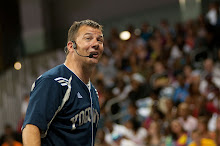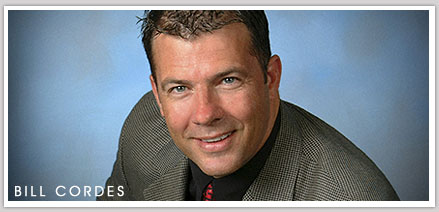My good friend, speaker, and author, Craig Hillier (
http://www.craighillier.com ) often talks about Leadership Law #1 10-80-10. It is a simple law that really speaks to strategies for developing leadership in your club or organization. This law divides people in to three groups. 10%-80%-10%. 10% of the people you meet will not like you, they will not like your ideas, and it doesn't matter how you present them they for whatever reason will not like it. The really difficult about this "bottom 10%" is that sometimes they are loud, bold and can be confrontational. Their whole purpose in life seems to be on making things not work. They want school initiatives to fail, they want their to be chaos because as long as there is chaos then we don't have to do anything to make a difference. Their mantra in life is: "It is not going to work anyway, this is dumb, so we should all just give up." Since the bottom 10% has a tendency to be so loud with their negative voice we have a tendency to believe that they represent the majority when in reality they are simply a loud minority. They are not a representation of the rest of your organization or school, but they want you to believe that
everybody thinks the way they think so all of your effort is really for nothing because it doesn't matter what you do you are not going to change.
Compare and contrast that 10% with the other 10%. This "upper" 10% will love you will love your ideas and they will have a strong desire to support you and your initiatives. It really doesn't matter what you do because they are in your corner and they will be your life long friend and supporter. In their eyes you can do no wrong.
Then there is the 80%. This is the percentage of your organization, school or community who has not made up their mind yet. They are open to influence, and they are waiting to be led. The question becomes which way will they go? Will they move toward the often loud and negative 10%, or will they move toward the upper positive 10% who want to impact their school/organization for the better. Craig Hillier asks this profound question. As a leader what "percentage of the population" should I focus my efforts?
Craig says, "If you are going to focus on the bottom 10% I suggest you buy a big bottle of
aspirin because you are going to need it." Often times leaders see opposition and we think that we will never be able to make a difference if we don't change their minds first. While this strategy seems reasonable, it is not very practical. This group of people will spend all their efforts trying to sabotage your every initiative and your efforts will be all for not.
The upper 10% is already on your side so they are not in need of your attention. They are working with you. We should appreciate the fact that they are with us, and the most useful thing we can do as leaders is to work together to focus on the 80%.
Remember, the 80% is neutral they have not decided which way to go. If we spend all of our time on the bottom 10% we will lose the 80%. Our job as leaders is to focus on the 80%!
While at a retreat at Union High School in Tulsa I had the opportunity to hear one of the senior leaders Bob Lind speak about the importance of living like champions. He talked about those who had gone before him and spoke about Todd Cook a young man from the Class of '95 who campaigned to keep people from walking across the Union High Redskin Logo that is in the middle of their school. He said it was wrong and people should not be walking on that logo. He felt that it should be roped off, and even though not everyone agreed with him at first, he eventually took an idea and made it into reality. Today, when you walk into Tulsa Union High School the logo is roped off, and no-one walks on the Union High symbol.
How did this happen? It happened because he had a good idea, developed some initiative and focused on the 80% to have his idea come into fruition.
As leaders we need to do the same thing. We need to take the initiative and focus on the 80%.
Hopefully, by now you are thinking, "What is something that I can do in my school or organization that could make a difference." This is a great question and it is the starting place for greatness. Maybe you would like to see more school spirit in your school, maybe you would like to see a service initiative started in your school, maybe you feel that there is too much negativity, maybe you feel that the freshman in your school are not being treated with respect, maybe you feel that there needs to be a mentoring program in your school or organization, maybe there needs to be more scholarship opportunities for graduates in your school. Your school is your world, and you have the power to affect change. I guess the question now becomes what am I going to do, and who am I going to focus on so that I can affect change in my school and community!
For more information about Craig Hillier go to
http://www.craighillier.com/ if you are an athlete and you want to make a difference on your sports team go to
http://www.highschoolsportsleader.com/ for an excellent resource on how you can positively affect change on your sports team!
For more information about programs by Bill Cordes go to
http://www.billcordes.com/ or simply click on the picture of Bill Cordes on the bottom of this post.
 As a youth speaker who has been walking the hallways of America's high schools for the past 20 years I can tell you that I have seen a lot of youth speakers come and go. It is a very challenging and rewarding profession. At the end of this post I am going to give you my short list of who I think you should hire to work with your students based upon the region in which they live. But before I do that I want to give you some tips that will support you in finding a speaker for your event.
As a youth speaker who has been walking the hallways of America's high schools for the past 20 years I can tell you that I have seen a lot of youth speakers come and go. It is a very challenging and rewarding profession. At the end of this post I am going to give you my short list of who I think you should hire to work with your students based upon the region in which they live. But before I do that I want to give you some tips that will support you in finding a speaker for your event.



